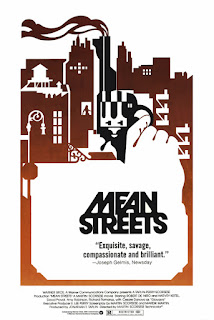FREE ON CINEGEEK.DE Cisco Pike
Welcome to the relaxed world of L.A. movies, with laid-back characters that basically provide a historical and political picture of the American soul! Cisco Pike is far from being a great film. But it does offer that loose, nice texture of L.A. films and of course a number of good actors. First up; Kris Kristofferson in his cinema debut. Back then he was still a folk singer. Usually acting performances by singers don't work so well because usually their image is used for the role. In fact, Kristofferson is also typecast as a composer and folk singer. But the character was conceived from scratch. And light and unforced, the way she works in the film. Some think Cisco Pike is another drug-music trip. At the time, Cisco Kid was not a big hit. Yet Cisco Pike finds its own unique tone and also has a few surprises in store. Right up until his unbelievable ending, we get to know Cisco (Kris Kristofferson), who used to be famous but now makes his way in the drug business. He gets out of the business, more or less. Until Officer Leo Holland (Gene Hackman) steals a large amount of weed and blackmails Cisco into selling the stuff. This all adds up to a plot of sorts, though the L.A. movies of the 70s don't need a linear plot at all. In truth, most of the scenes just serve as distractions. What's really interesting are Cisco's scenes with his former partner Jesse Dupre (Harry Dean Stanton), who has short-circuited his mind with heroin. A distant relative of Billy from Easy Rider (DVD724). Jesse is as vivid a character as you can hope for in cinema (just look at his scene with Viva and Joy Bang!). Viva, of course, is the Warhol superstar. She - pregnant - speaks in oblique sentences and thus develops her very own speech melody. Despite Karen Black simply reprising her role from Five Easy Pieces (DVD5688), Viva is the greatest supporting character! Along the way we get to see some of the fierce competition between folk and country singers. At one point Cisco, the superstar of yesterday, tries to get people to listen to his tapes. But they only want to know if he has any fresh material. Viva and Joy Bang are into Cisco because he used to be a superstar. But the high class groupies are of course not interested in him as a person. And Cisco's partner Jesse? He falls more and more into oblivion... Compared to the music world, the world of drugs and cops seems artificial. Officer Leo Holland disappears from the film for a while, reappears at the end to explain his motivation and to die (not very convincingly). Who he is, we never learn, and maybe we don't even care. And no actor, not even Gene Hackman, can pull off such a contrived death scene, not even when every film needs an ending. But that's all beside the point in a film like Cisco Kid, which is about drugs and seems drugged itself.

.jpg)
%20(Rating%209,0)%20DVD2398.jpg)

